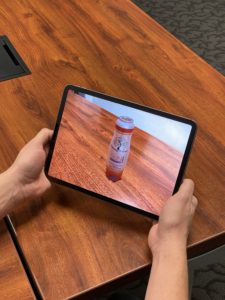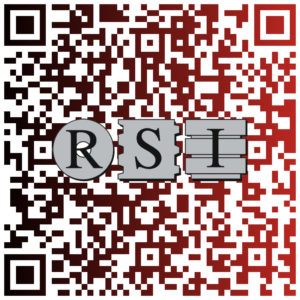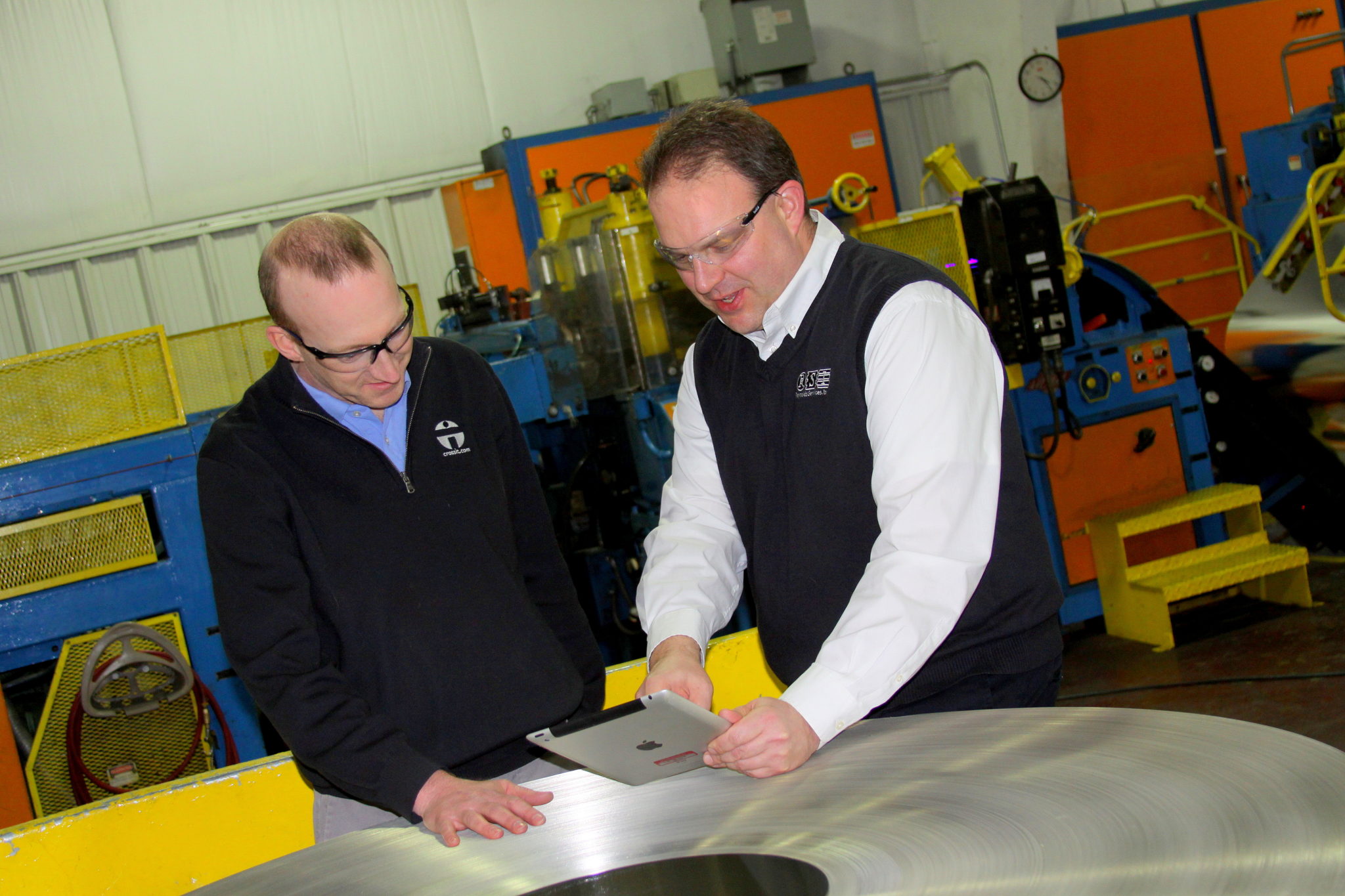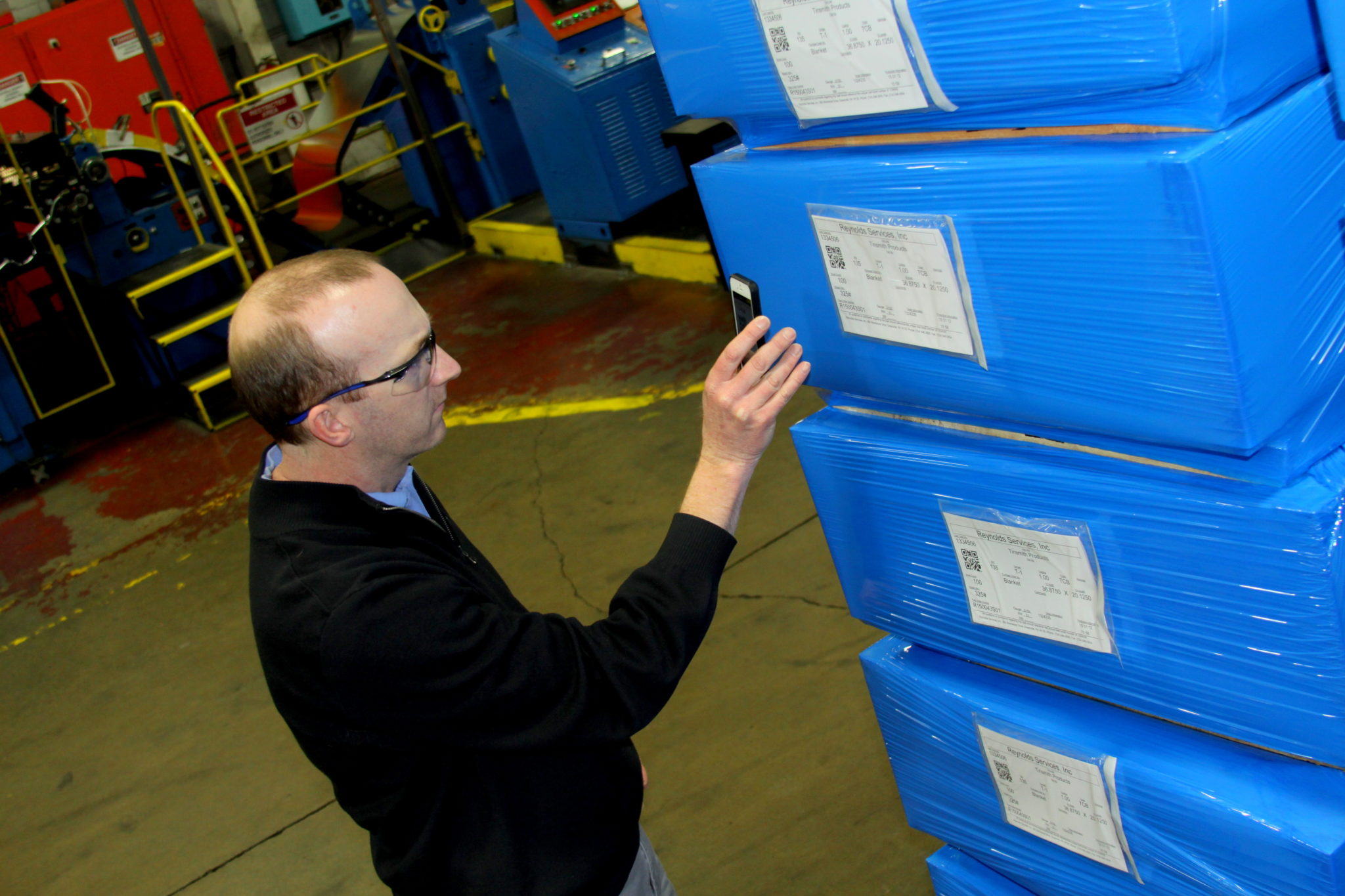Reprinted from The Canmaker December 2020 issue
© Sayers Publishing Group
An augmented reality prototype service has been developed by US metal service centre Reynolds Services Inc, which promises to bring new can designs more speedily to market. Rick Pendrous reports
An augmented reality (AR) prototyping service developed by tin mill metal services supplier Reynolds Services Inc (RSI) enables the rapid delivery of shelf-ready can prototypes to a brand manager’s hands for final approval.
The service from the Greenville, Pennsylvania-based RSI is particularly relevant in the Covid-19 world in which we currently live, where travel and face-to-face meetings are restricted.
Prototypes can be distributed as easily and quickly as sending a text message or accessing a web page. Customer-requested revisions and their distribution are limited only by the speed at which the engineering and prepress teams can work to deliver them, explains John Frangakis, chief executive of RSI.
The processes used combine traditional prepress functions with new and advanced manufacturing techniques such as computer-aided design, 3D printing and scanning, and even computer animation to make shelf-ready and shelf-representative prototype cans for customers.
When used natively on a customer’s Apple iOS device it creates an interactive experience which allows them to ‘place’ and manipulate a virtual object like the prototype in a real-world environment.
To demonstrate the capability of this new concept the Orange Grove Sun Screen prototype can was designed by prepress specialist The Meridian Design Studio, which RSI acquired in September 2019. It is an AR prototype for a custom single-piece aluminium shaped can for the personal care market. All can design including the shape and artwork were designed in-house at Meridian.
Using an iPhone or iOS device, it is possible to experiment with the Orange Grove Sun Screen prototype. Once the product has been ‘placed’ on a surface, it can be viewed from all angles by moving around it with the iPhone. It can be made larger or smaller by pinching or zooming using two fingers on the prototype, or it can be rotated clockwise or counter-clockwise by using those same two fingers in ‘Object’ rather than ‘AR’ mode. RSI hopes to have a system available for Android-based smartphones in the first half of 2021.
Development of the AR prototype
The Meridian Design Studio is best known for its prepress operations and services, including the manufacturing of printing plates for both tinplate and aluminium cans, explains Frangakis. It also has a growing 3D printing business. 
In addition to tooling prototypes and other items, Meridian had been combining the disciplines of 3D printing and prepress to make high-quality 3D-printed prototype containers which were representative of what a final container would look like on a shelf, he adds.
However, the biggest issue with these prototypes was that due to limitations in 3D-printing volume, shrink-sleeve size constraints, etc, the resultant prototype containers that Meridian could make were also limited in size or shape, he says. It was at this stage that Reynolds Services began looking at virtual reality and augmented reality models.
The first prototype was of a five-gallon steel pail. The second was of an aluminium aerosol container. “The aluminum aerosol AR prototype was literally texted from our team to an engineer at the can company, and then that engineer turned around and forwarded that AR prototype to his salesperson and a member of upper management at their company within a matter of minutes from our original distribution,” reports Frangakis. “When this happened, we knew we were definitely heading down a proper path to addressing the problem we had identified.”

As a tin mill products supplier to the industry, with a background primarily in tinplate, RSI’s financial model is to offer a prototype development service to
customers rather than licensing the product.
Prepress services
“We offer traditional prepress services,” says Frangakis. “We have extended our offerings of that prepress service to make printing plates, 3D-printed shelf-ready prototypes, digital printed and colour-corrected artwork proofs whether on paper or metal, and augmented reality prototypes such as the Orange Grove Sunscreen prototype.”
RSI has several launch partners for this service offering, he notes. They encompass manufacturers of multiple types of metal containers, made from materials including tinplate, cold rolled steel, and aluminium.
“We are proud to partner with Cleveland Steel Container to help them offer this prototyping service and product to their customers,” he says. “Furthermore, we have also partnered with aluminium aerosol can manufacturer Trivium Packaging to develop augmented reality prototypes.”
More information from Reynolds Services Inc, 860 Brentwood Dr, Greenville, Pennsylvania 16125, USA. Tel: 1 724 646 2600





